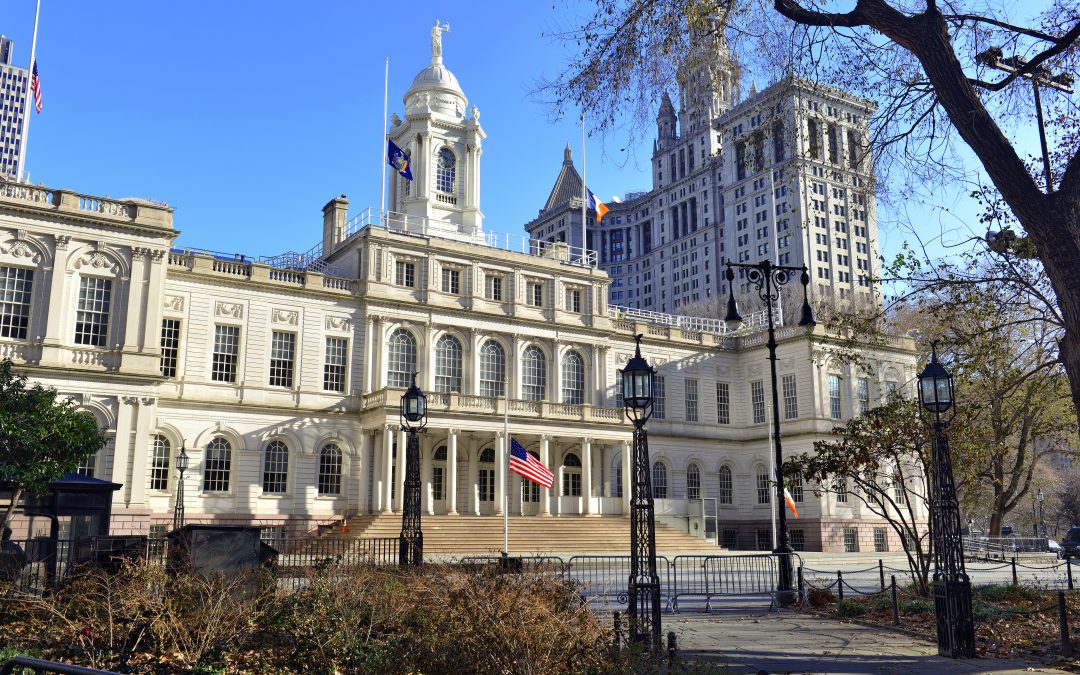New York City’s decision to make permanent a 20-percent fee cap on meal delivery is “nothing more than unconstitutional, harmful, and unnecessary government overreach,” says a complaint filed jointly in federal court by DoorDash, UberEats and Grubhub. The complaint seeks an injunction against the rule, which would prevent the city from enforcing the fee cap, as well as monetary damages and a jury trial.
The cap was first introduced in May 2020, when lockdown rules closed dining rooms and forced restaurants to rely on delivery to stay afloat. New York’s city council extended the fee cap twice before finally making it permanent in July of 2021.
The ordinance caps delivery fees at 15 percent and all other fees, including marketing, at 5 percent, for an effective cap of 20 percent.
The complaint argues unconstitutionality on the grounds the fee cap “interferes with freely negotiated contracts between platforms and restaurants by changing and dictating the economic terms on which a dynamic industry operates.”
The plaintiffs also claim that, if the fee cap persists, they will be forced to raise prices on the end consumer. That, they allege, will harm the industry by decreasing demand for delivery, resulting in lower total sales for restaurants and fewer earning opportunities for couriers.
Abhinav Kapur, CEO & co-founder of Bikky, an NYC-based hospitality tech firm, said that the restaurateurs he’s talked to aren’t concerned about the effect of fee caps on total sales. Rather than fearing it, Kapur said they look at it as an opportunity to win the customer back through a higher-margin channel.
Finally, the plaintiffs justify the “unnecessary” charge by arguing “restaurants need not partner with third-party platforms.” The legal documents claim there are several delivery-only and marketing services restaurants could employ independently, replicating the services of a DoorDash, UberEats or Grubhub.
Michael Schatzberg, CEO of Branded Strategic, and owner of several NYC restaurants is sympathetic to that argument. “As an operator, I want the commissions to be as low as possible,” but as an entrepreneur, “I don’t want the city to tell me how much I can charge for a glass of wine, or charge for a burger … it’s a slippery slope,” he said.
“I’m a free-market guy,” he summarized. “The market will determine the number.”
However, Schatzberg said the relationship between restaurant and third-party delivery provider was different from a typical vendor relationship. “If I turned off these delivery platforms, my sales would drop significantly,” unlike moving from US to Performance Foods.
“It’s very difficult for restaurants to make money and survive on third-party delivery platforms,” said Zach Goldstein, founder and CEO of Thanx, a hospitality technology firm. He said the idea that third-party delivery is good for restaurants is predicated on the idea that all sales are incremental, but argued that in mature markets such as NYC, third-party delivery sales should no longer be considered incremental.
Goldstein has his priors—in October 2020, he wrote a letter to the mayor’s of the U.S.’s 50 largest cities, urging them to adopt fee caps to prevent a “mass extinction event” among restaurants.
He said the economics of third-party delivery work out so that “restaurants are price takers, not price setters, a very dangerous place to be.” He sees fee caps as a “blunt tool” to prevent third-party delivery companies from abusing their power over price-taker restaurants.
The true solution, Goldstein argued, is to address the power imbalance between the restaurant and the third-party provider, which he proposed to do through data sharing. If restaurants can build their own relationship with their delivery customers, they won’t be as reliant on third-party platforms for sales. In his letter to mayors, Goldstein proposed that third-party delivery companies that shared customer data with restaurants be exempt from fee caps.
Kapur recalled being at a city council meeting where a representative from Grubhub claimed “all” Grubhub orders were incremental sales. He said data sharing would hold the plaintiffs accountable for that claim.
Pre-pandemic, Bikky ran the numbers on a group of clients to figure out how incremental delivery sales really are. “Only about one in three orders” from third-party delivery platforms were truly incremental, said Kapur. That means that instead of ordering through the app, the customer might’ve been just as likely to order first-party delivery or come into the dining room.
Also in July, NYC passed a law requiring third-party delivery companies to share customer data with restaurants. On Wednesday, DoorDash filed a complaint in federal court, asking for an injunction against the data-sharing law, which will go into effect in December 2021. The company claims the law is illegal, undermines user privacy and could imperil some at-risk users.
San Francisco, the only other city in the U.S. to make its pandemic-era fee cap permanent, is being sued by DoorDash and Grubhub, which seek to prevent the fee caps from going into effect. News of the lawsuit broke in mid-July, shortly before NYC voted to make its own fee caps permanent.
“We should expect this to be an extended battlefront,” said Goldstein. He predicts the decision, regardless of the outcome, will be repealed.


